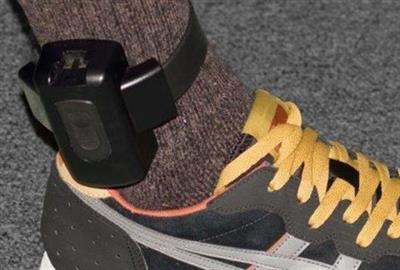Could You End Up Having Your Location Monitored?

The Introduction of GPS Tagging Will Reveal Your Location
The government recently announced a rollout, nationwide, of GPS electronic tagging that will mean 24/7 location monitoring of those wearing the tag.
The following 3 probation areas will have the tagging available; the North West, Midlands and North East. Following this, the South East, South West and Wales will have location monitoring by April 2019.
There will also be a pilot of the monitoring system in London, which will apply to offenders released from prison for knife-related crimes.
The roll-out follows a 15-month pilot in 3 areas and an independent process evaluation of the GPS location monitoring pilot has been used to construct the rollout process.
How the GPS tag works
The tags capture and record information on an individual’s location at all times. After receiving location signals from satellites, the tag then communicates location data via a mobile phone network then through to a case management system.
Who is the tag for?
The tag is for those who have committed violent crimes, and it would be considered beneficial to themselves and the public is they are monitored. Crimes would include violent offences (including domestic violence), harassment, gang crime, football-related offences and multiple theft offences.
Factors will need to be assessed, such as risk level, previous offending, motivation to change, ability to manage the tag and other sentence requirements. In the pilot scheme, those who had serious issues with mental health, learning difficulties or who didn’t have a fixed address were not suitable.
In particular, it is for:
- Individuals on court-imposed bail who would otherwise be remanded in custody;
- Offenders given a suspended sentence order or community order who would otherwise have been given a short custodial sentence;
- Offenders on HDC where risk could be managed more effectively by a GPS tag than a radio frequency (curfew) tag;
- Offenders not complying with licence conditions where enforcement action was being considered and offenders being considered for re-release after recall; and
- Offenders on a life sentence or IPP being considered for release by the Parole Board.
In respect of court-imposed bail, individual police forces will have the option to roll out the service as soon as it becomes available in their region, so even for those in one of the newly introduced areas this is potentially not an option for you yet.
What is the tag for, are there any benefits?
Four reasons have been given as benefits for the use of the tag on those on court bail:
- Offender rehabilitation;
- Facilitating risk management;
- Informing decisions about whether a wearer should be recalled to custody or court
- Providing evidence to exonerate or link a wearer to a crime.
Benefits are seen in the information that is received from the monitoring centre in respect of non-compliance or breach. This gives nuance to the intelligence with regards to behaviour which leads to more informed decisions on action to be taken over a breach or non—compliance.
Rehabilitation is supported as access is gained to historical data as to how the wearer spends their time which helps in evaluating their lifestyle and behaviour and identifies possible concerns.
On top of relieving pressures of other rehabilitative services, another obvious benefit is the safeguarding of victims.
Conditions
Location monitoring can be used when enforcing an exclusion zone from either an area or specific address; when the tag vibrates, the wearer will be reminded that they are in a prohibited area.
To keep offenders away from victims or known criminal associates, a restriction could be imposed from going within a certain distance from a given point or address.
The tag can also be used to check on an offenders attendance at things like mandatory appointments, as well as stand-alone monitoring and/or a curfew.
Are there any concerns to be addressed?
Yes, according to the review that followed the pilot there are some potential issues that need to be addressed before a national rollout.
These were gaps in the infrastructure, adequate processes being in place to support information being shared effectively, staffing levels, a need for more detail in reports and interpretation of the information, delays in notification of breaches and problems with the daily requirement for charging of the tag.
This is only a general overview of the law. For in-depth advice, or more specific advice relating to maybe your own circumstances, call call us in confidence on 0161 477 1121 or email us for more information.


